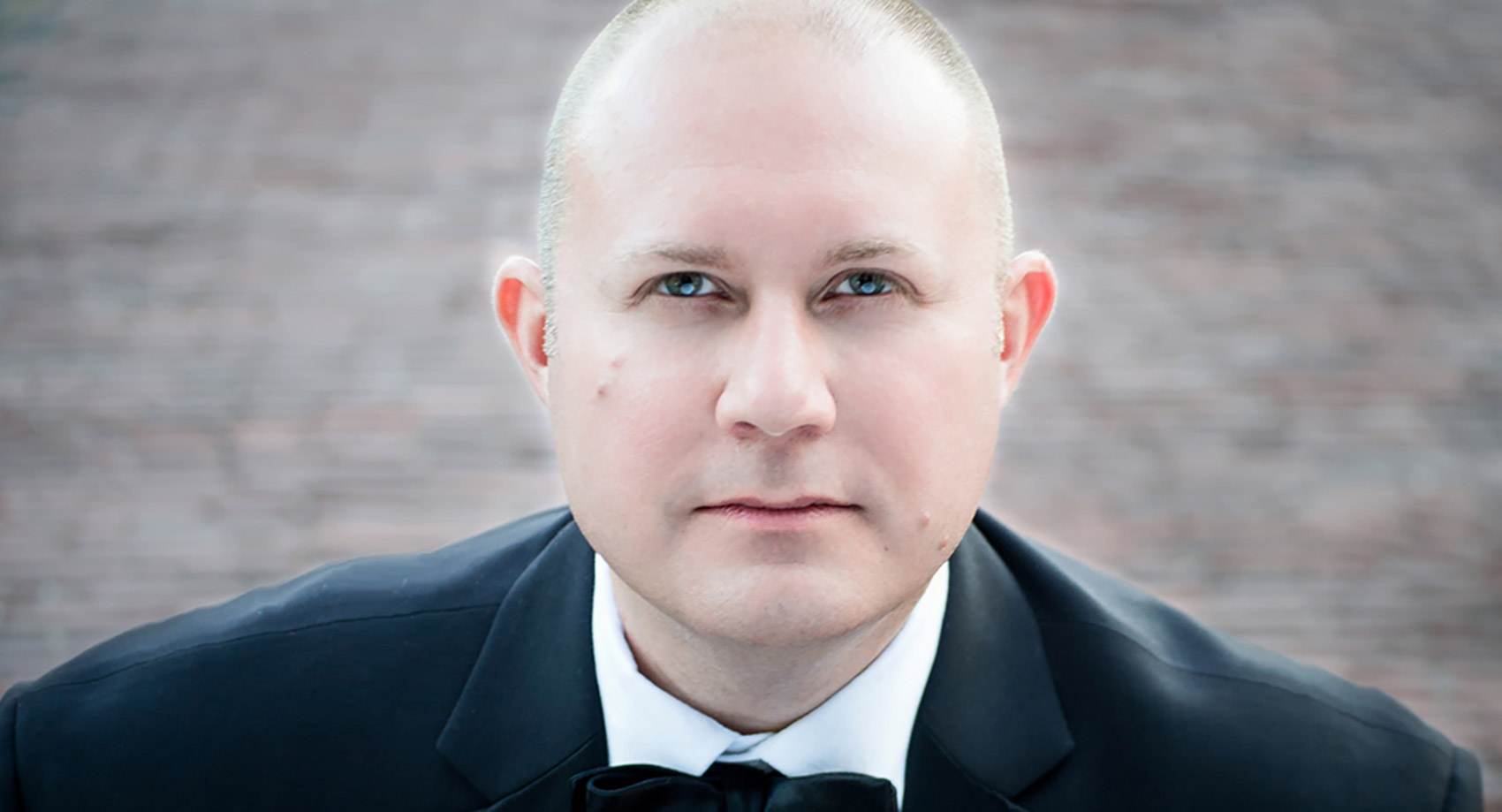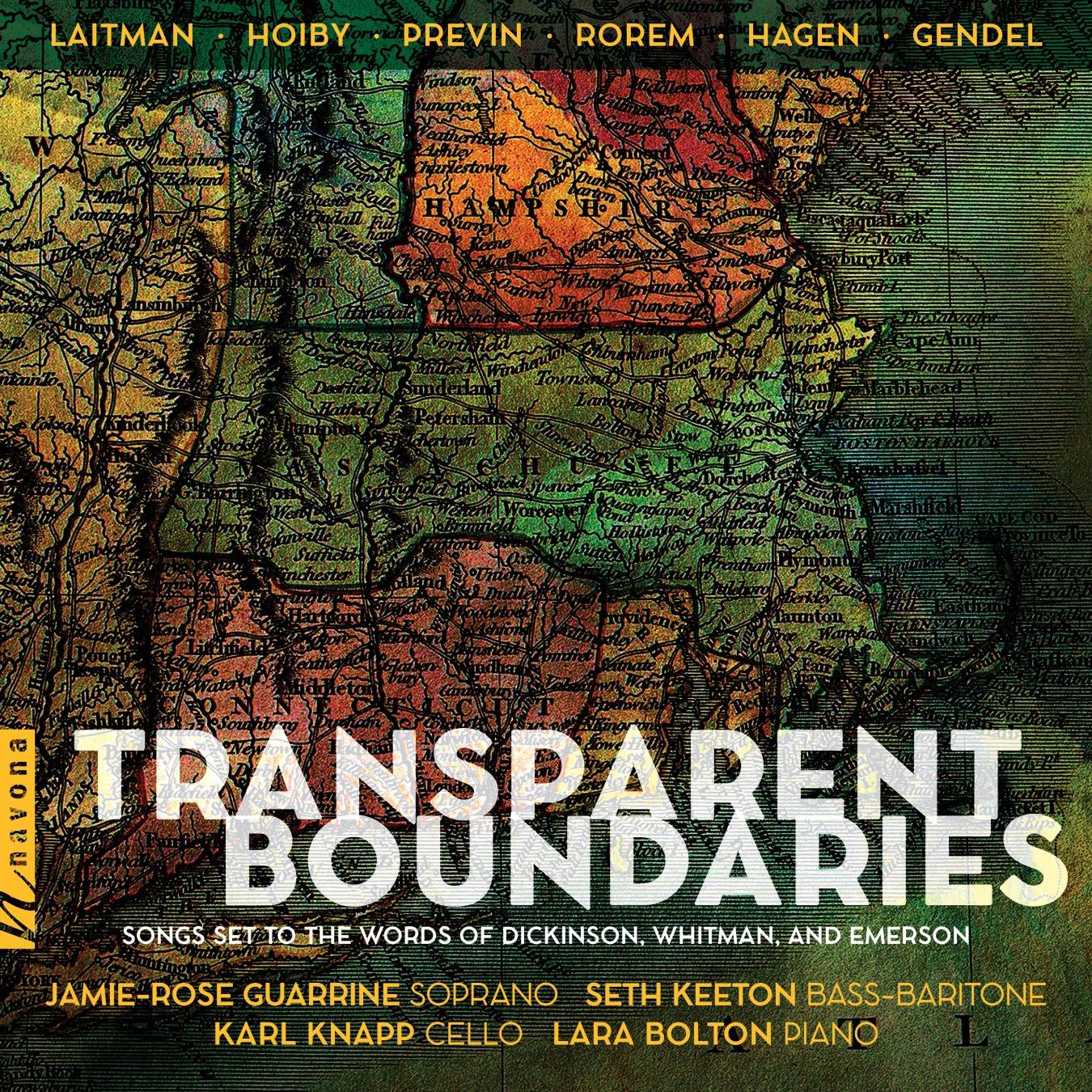For centuries, writers have documented the awe brought about by the pristine wilderness and untamed expanses of the American Midwest and West. Three authors in particular—Ralph Waldo Emerson, Walt Whitman, and Emily Dickinson—beautifully documented the boundless optimism and sense of opportunity that the country’s vast natural resources inspired and heralded a new era of American thought.
On TRANSPARENT BOUNDARIES, the three visionaries’ words are set to music to give their poetic works musical life. Soprano Jamie-Rose Guarrine and bass-baritone Seth Keeton deftly lead the charge on a series of artsongs, accompanied by pianists Lara Bolton and Scott Gendel and cellist Karl Knapp.
Today, Seth is our featured artist in “The Inside Story,” a blog series exploring the inner workings and personalities of our composers and performers. Read on to discover how a sheep named Eddie made one of Seth’s singing roles uniquely challenging…
Who were your first favorite artists growing up?
High School and younger – I wore out the 3 Tenors cd. Growing up in metro-Atlanta in the 90s, I was able to hear the Robert Shaw Festival Singers live several times. Also mid-to-late 80s pop like Madonna, Roxette, B-52s(!!!!), REM, and Counting Crows.
When did you realize that you wanted to be an artist?
I have always been a singer. When my family moved to Georgia when I was 5, my mom asked me what I would miss most. Apparently I said singing in the church children’s choir. I sang with the Atlanta Boy Choir until my voice changed, and have sung consistently ever since.
What was your most unusual performance, or the most embarrassing thing that happened to you during a performance?
First, as a Fest singer in Bremen, Germany, in Nabucco as the character Zaccharias, I had to carry a live sheep while singing a huge 8-minute aria. Throughout the season, eventually “Eddie” grew and became too heavy, so we had a handler, and I merely referred to the sheep.
Also, in singing the bass solos in the St. Matthew Passion for a church job, about a week before the performance, the director realized he hadn’t assigned the role of Pilate, and asked me to sing it. I told him “sure, just please tell me the page numbers so I don’t have to look all the way through the score.” I missed the final dress rehearsal for my grandfather’s funeral. Then during the performance, the whole thing had gone well (it’s a huge thing, especially for a mostly amateur choir). At the very, very end, I was making my way down as the bass soloist to sing the final little quartet, when the music stopped. The choir seated around me began looking up at me like I was supposed to do something. (The director had forgotten to tell me about this one Pilate line, and I hadn’t found this out in the dress rehearsal because I had to miss it!!!!!) So, I looked down, saw a bass clef and a character’s name that started with a P, and sight read it right there. The look on the director’s face as he realized what happened was unforgettable!
What is your guilty pleasure?
There are too many to list, but I love playing Minecraft with my son, and have started playing it on my own…
If you could make a living at any job in the world, what would that job be?
Although I love being a father and husband, if I could do it again, I would be a non-religious monk. Maybe Buddhist. I love being alone and I love learning.
If you could spend creative time anywhere in the world, where would it be and why?
Sequoia National Park. I love being in forests, and this one is really unbelievable.
If you could instantly have expertise performing one instrument, what instrument would that be?
Cello.
What was your favorite musical moment on the album?
That’s a toughie. I love all of the pieces I sang. There’s a pretty great moment in the Hagen premier, On the beach at night. The poem and likewise the piece has been full of anxiety and tonal and rhythmic difficulty. Daron Hagen really makes you endure until the big “They are immortal.” All of a sudden, it’s tonal and expansive and reassuring. It’s pretty great.
What does this album mean to you personally?
This is a passion project of mine. I love having cello incorporated into the piano/vocal texture. Also Jamie-Rose and Karl and I have been friends since our undergraduate at Illinois Wesleyan University. Working and touring with them was really special. Working with Lara Bolton again was really rewarding because our personalities are very similar. Finally, I feel a visceral connection to Whitman’s poetry. That earnest solidity feels so rooted, somehow. It reminds me sometimes of my grandfather, Pop.
Is there a specific feeling that you would like communicated to audiences in this work?
Freshness. Is that a feeling? I think the variety of colors of voice and instrumentation, the many world premieres, and the deep ‘Americanness’ of the poets all accumulate to a sense of freshness and newness.
Explore Seth’s Latest Release
TRANSPARENT BOUNDARIES
For centuries, writers have documented the awe brought about by the pristine wilderness and untamed expanses of the American Midwest and West. Three authors in particular—Ralph Waldo Emerson, Walt Whitman, and Emily Dickinson—beautifully documented the boundless optimism and sense of opportunity that the country’s vast natural resources inspired and heralded a new era of American thought.
On TRANSPARENT BOUNDARIES, the three visionaries’ words are set to music to give their poetic works musical life. Soprano Jamie-Rose Guarrine and bass-baritone Seth Keeton deftly lead the charge on a series of artsongs, accompanied by pianists Lara Bolton and Scott Gendel and cellist Karl Knapp.




